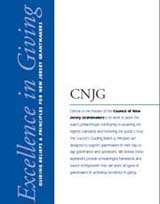Site Search
- resource provided by the Forum Network Knowledgebase.
Search Tip: Search with " " to find exact matches.
The Council of New Jersey Grantmakers invites members – and prospective members – from across the state to gather for an evening of connection and community. Rooted in CNJG’s mission of fostering shared learning, collaborative and trusting relationships, and network building, this event invites philanthropic peers to connect, converse, and cultivate meaningful connections in a welcoming and convivial setting.
The afternoon will include a brief welcome from CNJG leadership and our hosts followed by open time to mingle, share stories, and strengthen the trusted relationships that form the heart of our community. A tour of the arboretum grounds will be available for those interested.
Whether you are looking to reconnect with long-time colleagues, meet new peers from across the state, or cultivate new ideas that may spark future collaborations, this social offers the chance to deepen relationships that sustain and strengthen New Jersey’s philanthropic sector.
About the Arboretum: Once a country estate, Reeves-Reed Arboretum is now a 13.5 acre public garden listed on the National and State Registers of Historic Places. Its estate and gardens represent design trends by prominent late 19th and early 20th century landscape architects, including Calvert Vaux, a partner of Frederick Law Olmsted. More information can be found here.
There is no cost to attend this event.
Light refreshments will be provided.
CNJG thanks Investors Foundation and the Maher Charitable Foundation for underwriting the costs of the social
Excellence in Giving
In 2005, CNJG adopted Guiding Beliefs & Principles to offer a thoughtful source of direction and inspiration to help guide our state’s philanthropic sector into the future. CNJG first launched its Excellence in Giving initiative in 2007 with the goal is to provide grantmakers the practical tools necessary to ensure best practice in their operations and grantmaking.
The first booklet, Guiding Beliefs & Principles for New Jersey Grantmakers includes a wealth of insights and tips related to board governance, legal compliance, grantee communications, fiscal responsibility, public disclosure, and many other key areas of foundation governance and operations. It contains wisdom provided by leaders of all types of giving organizations within the CNJG’s membership, and is intended to serve as a practical resource to assist New Jersey foundations in their grantmaking. CNJG’s board is in the process of updating these beliefs and principles in 2023/2024. For more information on the updating process, please contact Theresa Jacks.
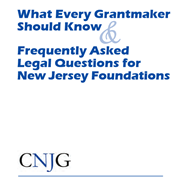 In 2010 CNJG released a second, comprehensive resource to help the state’s philanthropic community understand their ethical, legal, and fiduciary requirements and obligations - What Every Grantmaker Should Know and Frequently Asked Legal Questions. These two booklets are key publications in CNJG’s Excellence In Giving Series. While the Guiding Beliefs & Principles is available publically, members will need to log into access the legal guide for download.
In 2010 CNJG released a second, comprehensive resource to help the state’s philanthropic community understand their ethical, legal, and fiduciary requirements and obligations - What Every Grantmaker Should Know and Frequently Asked Legal Questions. These two booklets are key publications in CNJG’s Excellence In Giving Series. While the Guiding Beliefs & Principles is available publically, members will need to log into access the legal guide for download.
Members can request additional copies of the booklets mentioned on this page by contacting Theresa Jacks.
In the third session of Putting Racism on the Table (2016), Julie Nelson, Director of the Government Alliance on Race & Equity, Haas Institute for a Fair and Inclusive Society, focused on implicit bias. We encourage check out the viewing guide and discussion guide to be used with the video.
Watch the video
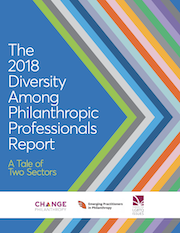
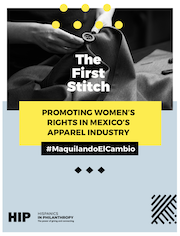
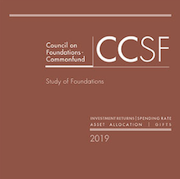
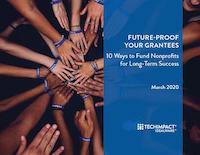
Wouldn’t it be nice if you could fund a single project that would have a positive impact throughout all of your grantees’ programs and services? There is: technology capacity building. Properly supported, the right technologies can build your grantees’ effectiveness and efficiency and multiply the impact of your other grants and programs. Many foundations are reluctant to support technology projects. As a result, many nonprofits are reluctant to directly ask for that support.
Tech Impact Idealware created this guide as a resource to bridge that gap.
These guides are designed to help foundations consider how more diverse and inclusive practices might advance their mission by making their work more effective and more reflective of communities served. By highlighting 10 ways foundations can approach diversity, this guide seeks to spark ideas and launch further dialogue.
There are three versions of this resource one for family, community and independent foundations.
The 2018 President’s Report is our annual look back at CNJG’s robust programming and services for our members and, by extension, the communities they serve. The Council is an engaged and cohesive network of grantmakers dedicated to our state’s communities and people.

